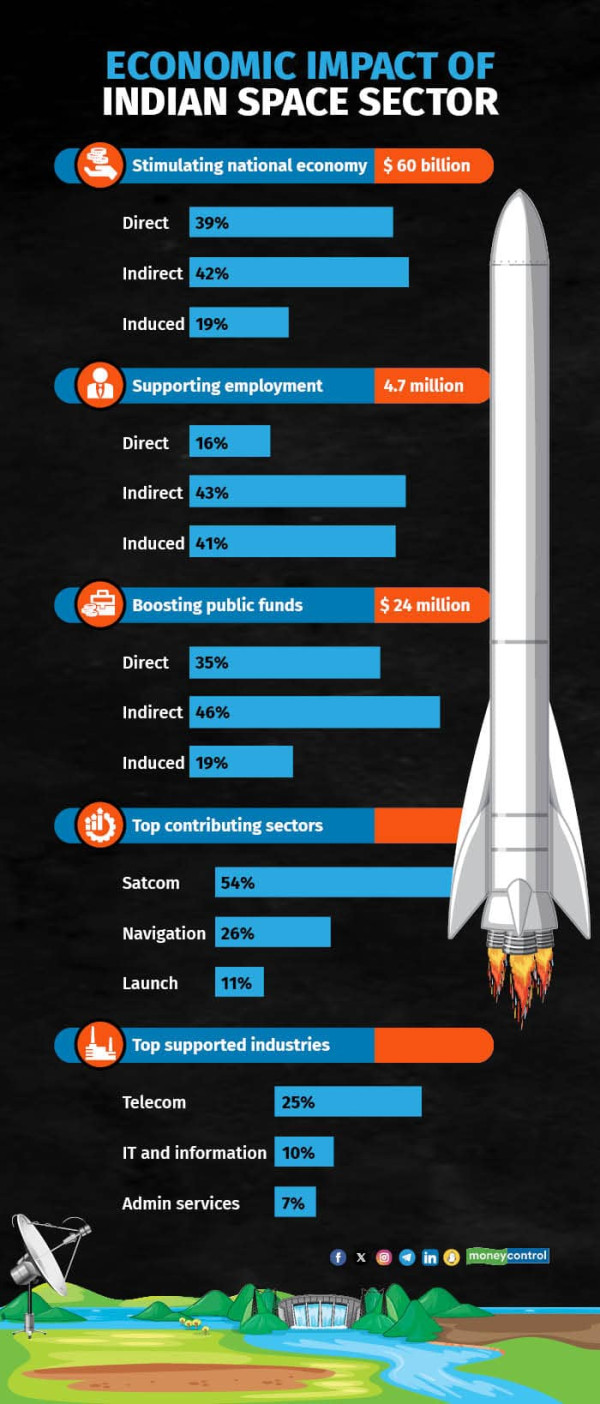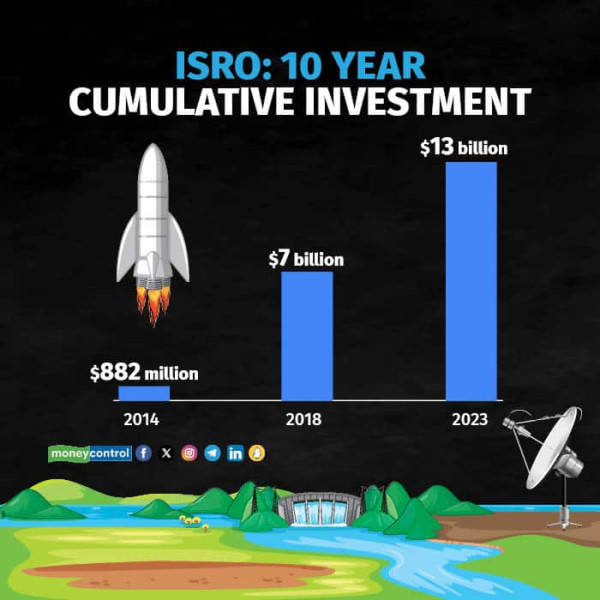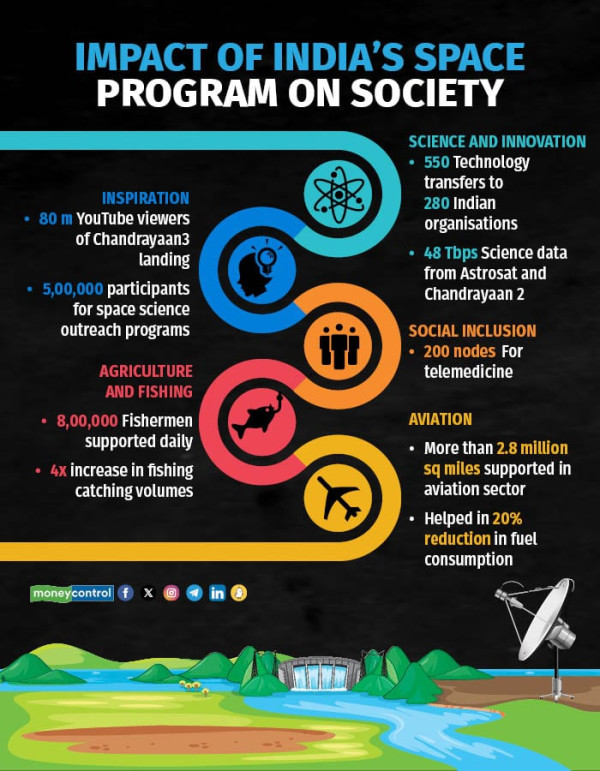For every dollar, India's space sector has given back $2.54 to the economy: Report
For every dollar generated through investments or revenues in India's space sector, an additional $2.54 has been generated for the national economy, preliminary findings of a report titled "Socio economic impact analysis of Indian space programme", released on August 23, said.
The study conducted by Econ One and Euroconsult, commissioned by the Indian Space Research Organisation (ISRO), assessed and evaluated the different level of benefits that have been generated by the Indian space activities. It was released on August 23 as part of the National Space Day celebrations.
"For every dollar produced, not spent, there is an additional $2.54 that has been generated to the national economy," Steve Bochinger, affiliate executive advisor of Euroconsult said at the National Space Day event in New Delhi.
 Source: Socio economic impact analysis of Indian Space Programme
Source: Socio economic impact analysis of Indian Space Programme
India's space program, spearheaded by the ISRO, is known for its frugal yet highly effective approach. It operates on significantly lower budgets compared to other global space agencies, yet consistently achieves remarkable results.
The Mars Orbiter Mission (Mangalyaan), for example, cost only about $74 million, a fraction of what other countries spend on similar missions.
 Source: Socio economic impact analysis of Indian Space Programme
Source: Socio economic impact analysis of Indian Space Programme
The report also found that Indian space sector has contributed $60 billion to the Indian GDP over the last decade through direct, indirect and induced effects.
"In addition, it has supported more than 4.7 million jobs in the country, and we estimate that it employs directly 96,000 jobs through the public and the private sector," Bochinger said while giving a presentation on the findings of the report during the event.
Social impact of space program
Apart from the economic impact of India's space economy, the report also touched on the social impact, India's space program has had over the last few decades.
For instance, Bochinger said that the report found the national space program has contributed to the nation in terms of prestige, sovereignty, and international leadership.
 Source: Socio economic impact analysis of Indian Space Programme
Source: Socio economic impact analysis of Indian Space Programme
However, when it came to competitiveness, access to market, the report pointed towards lower level of impact, he said. "That is because, over the last decade, the National Space Program has been driven by political consideration, but this is expected to change," he said.
Additionally, Bochinger said that start-ups reported lower level of benefits because start-ups developed their own initiatives. "But here, again, this is expecting to change with greater collaboration and public-private partnerships," he explained.
Challenges and way ahead
The report highlighted challenges that currently afflicts the Indian space sector such as regulatory, financing, infrastructure, market context, workforce, and international.
"There have been significant regulatory reforms, but they have not produced their full effect yet, and there are strong expectations in this domain," he said.
"Secondly, financing. We just heard about the recent announcement of the space venture capital fund. Access to private capital is vital for start-ups, and they are fighting to get access to private capital, especially due to an underdeveloped VC ecosystem specifically for space in the country," Bochinger said.
 Source: Socio economic impact analysis of Indian Space Programme
Source: Socio economic impact analysis of Indian Space Programme
Going ahead, the report listed ways in which the space sector can be improved. They include completing transition, enabling growth and competitiveness, embracing global opportunities, collaborative approach and inclusive space program.
"It is very important to strengthen collaboration and dialogue, not just within the space sector, but also with end-users. Too many players are working in silos. It is important to strengthen collaboration, to have a fully inclusive space program; help the development in terms of revenues, but also support wider development and maximise the benefits of space for the nation as a whole," Bochinger added.